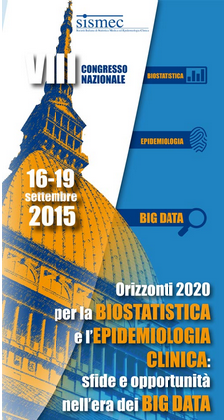 The advent of genomics and the ability to access and manage massive data sets, pose new challenges and delicate questions about the methods and the lawfulness of the use of these particular sources of knowledge to those involved in various capacities of Statistics and Epidemiology.
The advent of genomics and the ability to access and manage massive data sets, pose new challenges and delicate questions about the methods and the lawfulness of the use of these particular sources of knowledge to those involved in various capacities of Statistics and Epidemiology.
Moreover, the availability of information on individual behavior derivable from other databases, totally disconnected from sanitary purposes (eg. phone records, tracks of websites and social networks) is a further incentive to use them for the purposes of advanced research.
But what are the real benefits, and the inevitable limitations of this new frontier of research biostatistical and epidemiological?
This will be discussed in Turin, September 16 to 19, on the occasion of the eighth National Congress of the Italian Society of Medical Statistics and Clinical Epidemiology (SISMEC).
There are, in particular, the pre-congress courses on Wednesday 16 (time: 9-17) to which you can participate regardless of inclusion in Congress:
- Bayesian networks for forensic genetics;
- Bayesian sample sizing in clinical trials with practical applications;
- Mediation analysis in epidemiology;
- How to monitor clinical practice and measure the impact? Strengths and limitations of administrative databases.
To learn more visit the website dedicated to the event.
For more details:
- Nuffield Council on Bioethics Report "Biological and health data"
- "Ethical Challenges of Big Data in Public Health", article published on PLOS Computational Biology signed by: Effy Vayena, Marcel Salathé, Lawrence C. Madoff, John S. Brownstein